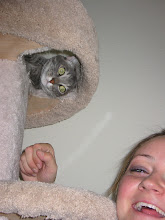Melissa Veum
Engl 48B
01/11/11
Journal #3- Booker T. Washington
"... I used to try to picture in my imagination the feelings and ambitions of a white boy with absolutely no limit placed upon his aspirations and activities. I used to envy the white boy who had no obstacles placed in the way of his becoming a Congressman, Governor, Bishop, or President by reason of the accident of his birth or race (Washington, 679)".
"Washington replied that confrontation would lead to disaster for the outnumbered blacks, and that cooperation with supportive whites was the only way to overcome pervasive racism in the long run (Wikipedia)".
Even though Booker was doing his best to try and fit in schooling whenever he could between work and home, he still often thought about being a white boy and not having to struggle to learn. Learning seemed to be something that "privledged" white kids got to do and even though Booker and his family were free, they still had to work to make ends meet. It was not just about what he wanted to do, he had to ablidge his family as well. Booker would think about white boys with "no limitations to their activities or aspirations" in life and it made him envious in a way. He wondered what it would be like with no obstacles in your way of becoming whatever you wanted to be in life. No struggling, just aspirations of wanting to be and in some cases absolutely being granted the job of your dreams, as President or as a Congressman. Booker talks about this privilage coming about to white boys who were "accidently" born into this raceand to specific families. He saw this as accidental because it was. It seemed that just because of where, when, and to whom you were born didn't really matter as much as the color of your skin when you were born. Just because some children were born white they were given special privledges and most told that they could become whomever they wanted. Booker had to work for everything in his life and things were not just as easily handed to him, in this way it seems that he was envious of these white boys merely because of the color of their skin and what that must've felt like.
I think that Booker T. Washington was extrememly smart in the fact that he knew who he was and what he wanted as an individual, not just as a poor African-American child growing up in Virginia. Being intellectually smart was very important to him and he felt entitled to an education just as much as the next child. I liked how Booker explained that after some time he was no longer envious of the white boy because he knew that just because you were white didn't mean that you were successful in your life, he knew that you had to work at your life and at what you wanted to be. He knew that success was based on successful you were in your life even with the odds stacked high against you. Because Booker had to work harder in his life and he was not just handed anything because of birthrate, it made him appreciate his accomplishments even more. He had worked and struggled and juggled a lot in the early parts of his life and he can feel good about what about what he has accomplished and also feel good about his race and who he is because he is a confident, strong individual.
